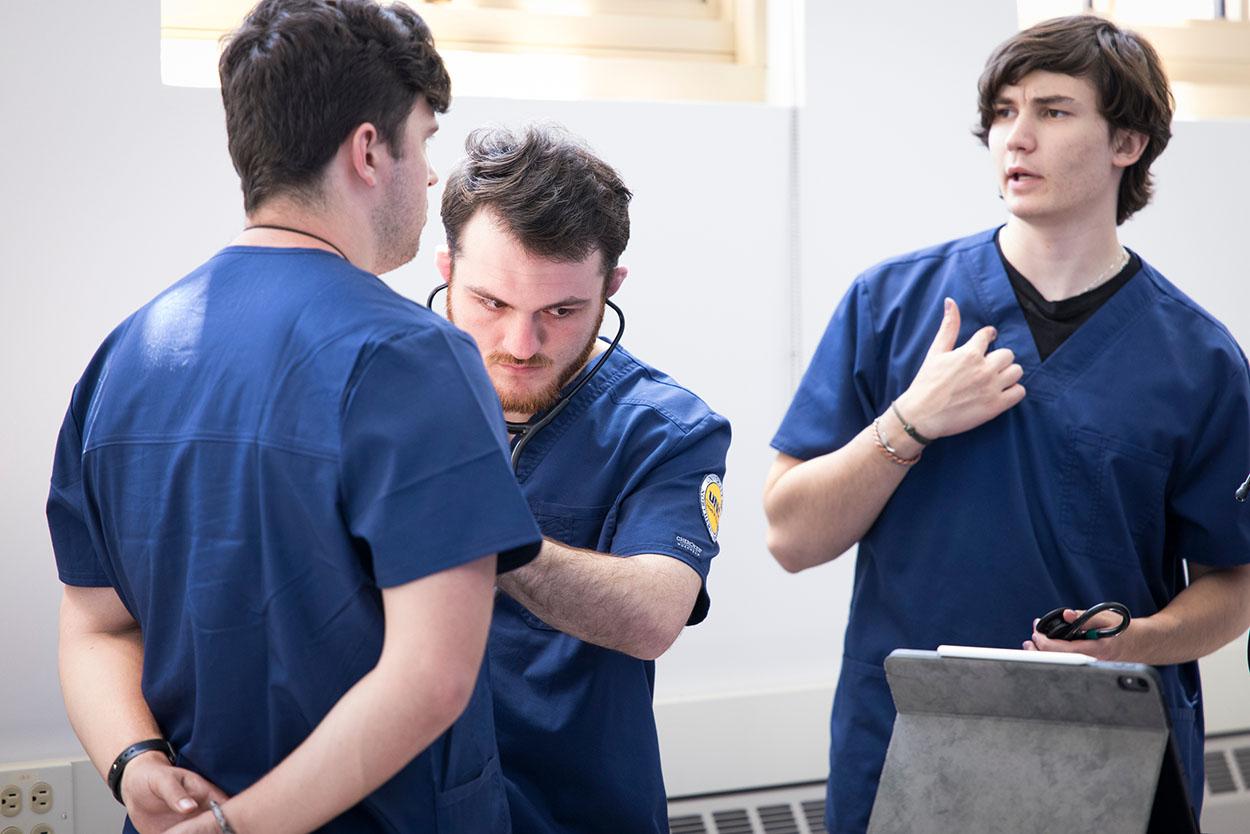
Not only did she have preeclampsia twice, but she also had HELLP syndrome and severe postpartum depression
“We just kind of have this expectation also that women just suffer for the good of everyone and it makes it really easy to miss very serious problems,” Nicole Pember said. “Things like Preeclampsia, the symptoms are very similar to just kind of like being pregnant and miserable.”
Preeclampsia is a serious, sometimes fatal condition for mid-term mothers that results in high blood pressure, nausea and headaches. HELLP syndrome is the breakdown of red blood cells. It can include liver problems and thinned blood.
Nationally, more women are dying of pregnancy-related complications than any other developed country. The U.S. is also the only developed country seeing a rise in maternal deaths.
In Colorado, maternal mortality rates are low at around 35 women per year, but experts have trouble comparing data.
“It's a little challenging to compare Colorado to other states or to compare any states, really,” said Shivani Bhatia, the maternal health coordinator for the Colorado Department of Public Health and Environment. “We are generally in the lowest 10 states or so given the rate, but these rates are calculated very differently in each state.”
There is a push by the federal Centers for Disease Control to standardize data collection on maternal mortality to make it easier to compare trends, Bhatia said. But for now, there’s no nationwide standard definition of maternal death.
Health department data show almost 80 percent of maternal deaths in Colorado are preventable, but Bhatia said “preventable” is a complicated word.
“It could have been preventable at one of a variety of different levels,” she said. “It could have been preventable at a facility level. It could have been preventable at a structural or community level, at the societal much bigger picture kind of level. And that's especially true when we're looking at deaths that are due to suicide or to overdose.”
The number of mothers who die from medical complications like preeclampsia and hemorrhage is trending down in the state, but deaths from suicide and drug overdose are on the rise.
“I left the hospital and I was like, ‘Wow, it is so bright out here,’” Pember said about her postpartum depression. “I spent the day I got home and the next day just like completely hysterical, sobbing uncontrollably for hours on end and I just couldn't handle it.”
According to public health officials, the risk factors for drug abuse and suicide apply to mothers too. Ensuring affordable housing is available and that people have access to care can help bring those numbers down, they say. Part of the department’s work is to educate doctors and other care providers on treating mental health issues in pregnant women. Many doctors are nervous to use the best substance abuse treatment available — medication-assisted treatment — for people who are pregnant.
In May, Gov. Jared Polis signed a bill that aims to lower maternal deaths in Colorado. The new law requires the state to review and collect data on deaths of mothers. It passed through the legislature with unanimous support.
The group Bhatia runs out of the state's health department has been reviewing maternal deaths since the late 1990s. But with this new law, members of the Maternal Mortality Review Committee said the importance of their work is now officially recognized — both with state law and with funding. They’ll get more than $145,000 annually to pay staff and publish data more frequently.
Every few months, the committee — a group of around 25 volunteers — tries to get a whole picture of a woman’s life through her medical records to figure out whether it was related to their pregnancy. They think understanding why the woman died will help keep others from dying.
Because of privacy laws and a lack of other resources, the group’s knowledge has to come from official medical records.
“Frequently, behind this woman’s death is not just what happened in her provider’s office, in the hospital, during those 365 days after she gave birth,” said Dr. Brie Thumm, a midwife and member of the review committee.
The group also includes doctors, coroners, public health professionals and mental health professionals.
Thumm described the reasons behind maternal deaths as “swiss cheese.” Small mistakes or policy decisions create holes and if enough holes line up, someone dies.
“Why was there a delay in care? Why was she not at the hospital when she had symptoms of preeclampsia? Was it that she didn't have a ride? Or was it that somebody had presented the symptoms to her but not in her native language so she didn't understand? Or was she given a handout at a reading level that she couldn't comprehend?” Thumm said.
Only using official medical records presents a major problem when someone doesn't trust the health system, Thumm said. Ideally, she’d like to talk to a mother’s family and friends to get a fuller picture of what went wrong.
“I have sort of a visceral fear of bad outcomes particularly in my patients who are women of color,” said Dr. Bronwen Kahn, a specialist in high-risk obstetrics on the committee.
Rural women and women of color have a much higher risk of dying a pregnancy-related death. According to the CDC, the vast majority of maternal deaths in the U.S. are women of color.
Kahn said that’s because the problem of maternal mortality is mixed up with intangible issues like sexism, racism and poverty.
“I think sometimes [the] whole health care system could do better to listen to women’s voices — women who are saying, ‘I feel like something’s not right,’” she said.
The committee will meet again June 19 when they will begin reviewing cases from between 2015 and 2018. They are required to submit legislative reports every three years starting in July 2020. That will be the first analysis and report published under the new law.
The department has also launched a marketing campaign in English and Spanish to encourage mothers to get mental health care.
Pember said she is still struggling with postpartum depression a year and a half after her youngest daughter’s birth. Still, Pember says she was lucky.
“If someone hadn’t told me, ‘Hey, you need to come into the hospital immediately if that happens to you,’ I might have gone back to bed,” she said. “Women die all the time because they are not taken seriously by their physicians or they’re like, ‘I’ll sleep it off and I’ll get better.’ And sometimes you don’t wake up.”









